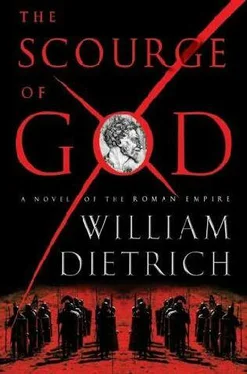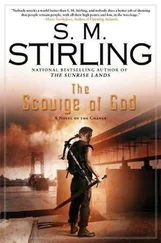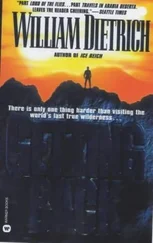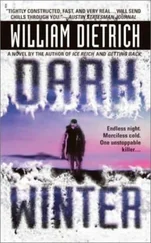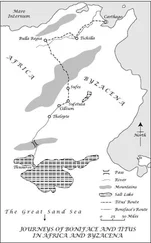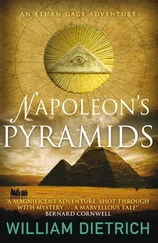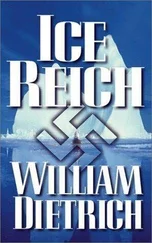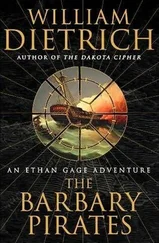William Dietrich - The Scourge of God
Здесь есть возможность читать онлайн «William Dietrich - The Scourge of God» весь текст электронной книги совершенно бесплатно (целиком полную версию без сокращений). В некоторых случаях можно слушать аудио, скачать через торрент в формате fb2 и присутствует краткое содержание. Жанр: Фэнтези, на английском языке. Описание произведения, (предисловие) а так же отзывы посетителей доступны на портале библиотеки ЛибКат.
- Название:The Scourge of God
- Автор:
- Жанр:
- Год:неизвестен
- ISBN:нет данных
- Рейтинг книги:5 / 5. Голосов: 1
-
Избранное:Добавить в избранное
- Отзывы:
-
Ваша оценка:
- 100
- 1
- 2
- 3
- 4
- 5
The Scourge of God: краткое содержание, описание и аннотация
Предлагаем к чтению аннотацию, описание, краткое содержание или предисловие (зависит от того, что написал сам автор книги «The Scourge of God»). Если вы не нашли необходимую информацию о книге — напишите в комментариях, мы постараемся отыскать её.
The Scourge of God — читать онлайн бесплатно полную книгу (весь текст) целиком
Ниже представлен текст книги, разбитый по страницам. Система сохранения места последней прочитанной страницы, позволяет с удобством читать онлайн бесплатно книгу «The Scourge of God», без необходимости каждый раз заново искать на чём Вы остановились. Поставьте закладку, и сможете в любой момент перейти на страницу, на которой закончили чтение.
Интервал:
Закладка:
The sun rose as it had set, red through smoldering cloud.
It glinted in our eyes, and Aetius ordered his generals and kings to brace our disorganized ranks in case the Huns used the light at their backs to charge while we were relatively blinded. But the enemy was no more ready for combat than we were. Such numbers had never been assembled for a battle; and there was considerable confusion on both sides as men were moved first here, then there, grumbling about the anxious waiting as the sun climbed higher and hotter. There was a small stream that tantalizingly ran between the armies, but it was within bowshot of either side so none dared venture there. Instead, women passed down the ranks with skins and jars of water drawn from the captured river in our rear.
The men drank thirstily, sweating in their armor and pissing in place until, by the time it was noon, the battlefield already smelled like a privy.
“ When will it start?” we grumbled.
The plans of the two sides were opposites of each other.
Attila placed himself and his Huns at the center of his line, clearly hoping to use his cavalry, the fiercest of his forces, to split our army in two.
Attila’s Ostrogoths with King Valamer were on his right, facing our Roman left, as were his battered Gepids and the rebel Bagaudae. Cloda, the Frankish prince who wanted the crown, would there face his brother, Anthus.
The Rugi, Sciri, and Thuringi tribes allied with the Huns were, in turn, on Attila’s left. These were stiffened by a force of several thousand Vandals who had come to kill Visigoths.
Aetius, in contrast to Attila, put his best troops on either wing and, as promised, Sangibanus and the Alans in the center. “He does not have to win. All he has to do is hold,” Aetius said. This force was stiffened by fresh troops as yet unblooded, the Liticians and the Olibriones. What the old Roman veterans lacked in youthful vigor they more than made up in experienced determination.
Theodoric and his Visigoths formed the Roman right flank. They were the most powerful cavalry we had, arrayed against the Rugi, Sciri, and Thuringi.
Finally Aetius and his Roman legions-combined with the Franks, Saxons, and Armoricans-made up the Roman left. Except for the Frankish heavy cavalry that had fought so well the afternoon before, these were primarily foot soldiers, shield linked to shield in unbroken walls, who would advance like a lumbering dragon against the German infantry on the enemy side. What Aetius hoped was that as the Huns hurled themselves against his center, he could close on the Hun allies on either side and push the invaders together, trapping and slaughtering them as the Romans had been slaughtered at Cannae by Hannibal or at Hadrianopolis by Fritigern and the Goths.
“All will depend on two things,” he told us. “The center must hold, or Attila will run rampant in our rear and cut us down with arrows from behind. Second, our own wing must seize that low ridge before us, because from there our infantry can hurl spears down on any enemy charge and turn it back. The decisive blow will then be delivered by Theodoric and his Visigoths. If the Huns are in confusion, his cavalry can win the day.” He put his helmet on his head.
“I told Theodoric all the riches of the West and East are waiting in Attila’s camp. He told me that in that case, he will either be wealthy beyond measure or dead by the nightfall.” His smile was grim, and not entirely reassuring. “That prophecy works well enough for all of us.” History has recorded these battle plans as simple and clear. The reality is that both sides were a babble of languages and a coalition of proud kings; and so neither the patient diplomacy of Aetius, nor the terrifying charisma of Attila, could easily maneuver men into position. We could scarcely understand one another or grasp the scale of the field, which ran for miles. It could take half an hour to relay an order.
How many were assembled that day no man will ever know for sure. Tens of thousands of escaped Roman slaves had swelled the ranks of Attila. Tens of thousands of merchants, shopkeepers, farmers, scholars, and even priests had swelled the Roman ranks, knowing Aetius offered the only chance to sustain civilization. Any attempt at counting was impossible in the milling throngs and swirling dust, but the numbers on each side were in the hundreds of thousands, I believe. It was as if this was Armageddon, the final battle in the history of the world, and every man had pledged his soul on its outcome.
Accordingly, hour upon hour passed with the two armies essentially in awe of each other, and still separated by more than a mile. The ridge remained unclaimed, and the tempting brook was a pale line in high grass promising water to the first army that could seize it. Yet neither was ready to advance for some time, because to go forward in disarray was to invite annihilation. I grew tired of sitting on my restless horse, and the infantry grew so weary of standing that many sat in the grass.
I said I remember the night as one of song, but the noon was one of stillness. It was apparent by midday that both sides had achieved some semblance of order and that combat must soon begin, and a curious quiet descended on both sides. For some it was silent determination, I suppose, for others fear and for still others prayers and superstition-but all knew that the test was finally at hand. I had nothing useful to say, either. Never had the Romans faced such a fearsome enemy. Never had the Huns faced such a determined foe: our backs, in a sense, to the great western sea, even though the ocean was far away. There were at least a thousand standards and banners held upright among the endless ranks of soldiers, and they formed a thicket as quiet as a grove before the storm. I saw the golden legionary standards of the Romans; the horsehair banners of the Huns; and the flags, crosses, and pagan symbols of all the diverse tribes and nations that had gathered here, each man identifying himself in part by the symbol that was before him. The suspense seemed almost unbearable, my mouth dry paper despite the water I sipped, and I wondered where past that vast and innumerable horde Attila’s own laager might lay. That was the goal I must fight toward, because that was where Ilana would be.
I had no idea what she might look like after months of imprisonment, whether she had been burned and tortured, whether she felt I’d abandoned her to the Huns or done what she wanted by fleeing with the sword. It didn’t matter. She was Ilana, a memory as sharp and vivid as a steel blade. The greater this conflict became, the more I cared about my own small happiness. No matter who won this day I myself would know no peace until I found her, won her back, and took her from this nightmare. Kings fought for nations. I fought for my own peace.
As if he read my thoughts, a lone horse and rider detached himself from the Hun center and began a long, easy lope that angled toward our lines, the horse a chestnut color and the Hun erect and proud, his queue bouncing as he rode, his quiver of arrows rattling. The clop of the hooves was startling in the pregnant silence. He splashed across the little stream, but no one shot at him; and at a hundred paces from our lines he turned slightly and rode parallel to our ranks, coolly surveying the thousands upon thousands upon thousands of men we’d arrayed, his gaze clearly searching for someone. Then, as he drew abreast of the Roman formations on the left I recognized him at last and knew precisely who it was he was looking for: me.
It was Skilla.
His horse slowed as he came abreast of the little forest of standards around Aetius and his officers, hunting for my face, and with a feeling of dread and destiny I dully raised my arm. He saw my gesture, and I took off my helmet to make sure of his recognition. He halted his pony and pointed, as if to say it was time to renew our fight. I saw him grin, a flash of teeth in the tan of his face. Then he wheeled and galloped back to his own army, taking a place on the Hun right now, roughly opposite my own. The men of his new lochus cheered.
Читать дальшеИнтервал:
Закладка:
Похожие книги на «The Scourge of God»
Представляем Вашему вниманию похожие книги на «The Scourge of God» списком для выбора. Мы отобрали схожую по названию и смыслу литературу в надежде предоставить читателям больше вариантов отыскать новые, интересные, ещё непрочитанные произведения.
Обсуждение, отзывы о книге «The Scourge of God» и просто собственные мнения читателей. Оставьте ваши комментарии, напишите, что Вы думаете о произведении, его смысле или главных героях. Укажите что конкретно понравилось, а что нет, и почему Вы так считаете.
